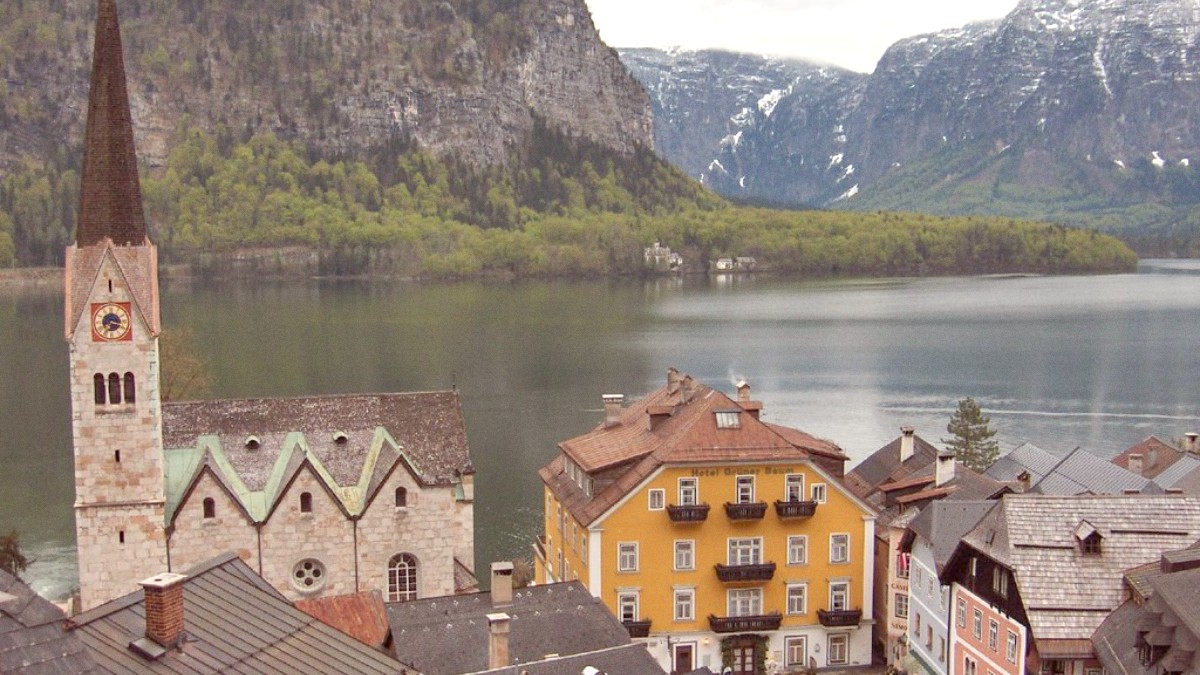
Salzkammergut, Austria
The Hallstatt-Dachstein/Salzkammergut Cultural Landscape is an UNESCO World Heritage site, emphasizing conservation of its natural beauty and cultural heritage.
Austria has excellent waste separation and recycling systems. Use designated bins for plastic, paper, glass, and organic waste.
Tap water in Austria is potable and of high quality. Avoid unnecessary water waste. Carry a reusable water bottle and refill from taps.
Your travel choices can contribute to environmental well-being.
Consider purchasing carbon offsets for your flights to and from Austria. Many airlines and third-party organizations offer programs to mitigate the environmental impact of air travel.
Look for hotels or guesthouses displaying environmental certifications or clearly stating their sustainability practices (e.g., energy efficiency, local sourcing, waste reduction).
Dispose of trash properly, especially when hiking in natural areas. Avoiding littering preserves the pristine environment. Consider using reusable products to limit waste generation.
Beyond direct actions, contributions to conservation organizations support wider environmental efforts. Learning about local ecosystems can also deepen your appreciation and drive responsible behavior.
Learn about specific environmental projects in the Salzkammergut region and how they maintain its UNESCO status.
Find additional guides and tips for responsible tourism globally and within Austria.
Do not litter. Carry out everything you carry in, including all trash.
Interacting respectfully with Hallstatt's heritage and community.
Hallstatt is a small village with a permanent population. While tourism is important, the village can feel overwhelmed by visitor numbers. Respectful behavior is paramount.
Simple gestures can go a long way in building positive interactions with locals. A polite and patient approach is always appreciated.
While Hallstatt is incredibly photogenic, be respectful when photographing people. Privacy is valued.
When visiting churches or other religious sites, modest dress and respectful behavior are customary.
A brief overview of social norms that contribute to a harmonious visit.
Politeness and patience are highly valued in daily interactions.
Avoid overly loud behavior, specifically in quiet residential zones.
Refrain from casual discussion of WWII or Nazi history.
Generally, exploitation is not a significant issue in Hallstatt. Always maintain transparency and ethical conduct in all interactions and purchases.
Your choices as a traveler directly benefit the local community.
Support local businesses directly. Opt for locally owned restaurants, purchase souvenirs from small, independent shops, and book accommodation directly with guesthouses.
Look for locally made crafts and products. These purchases often directly benefit artisans and small-scale producers within the region, rather than supporting mass-produced imports.
Opting for local services contributes directly to the regional economy. This includes transportation and tour services.
Exploitation is generally not a significant issue in Hallstatt, given Austria's strong regulations and high standard of living. However, vigilance is always prudent.
If you wish to support local causes, researching reputable local charities or community organizations is recommended, rather than giving money to individuals on the street.
Always pack out everything you pack in. This includes all trash and food waste.
Do not feed wild animals. It can disrupt their natural behaviors and health. Observe wildlife from a distance.
Leave no trace. Carry out everything you carry in, including all trash.